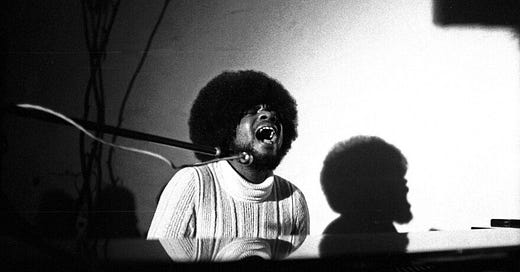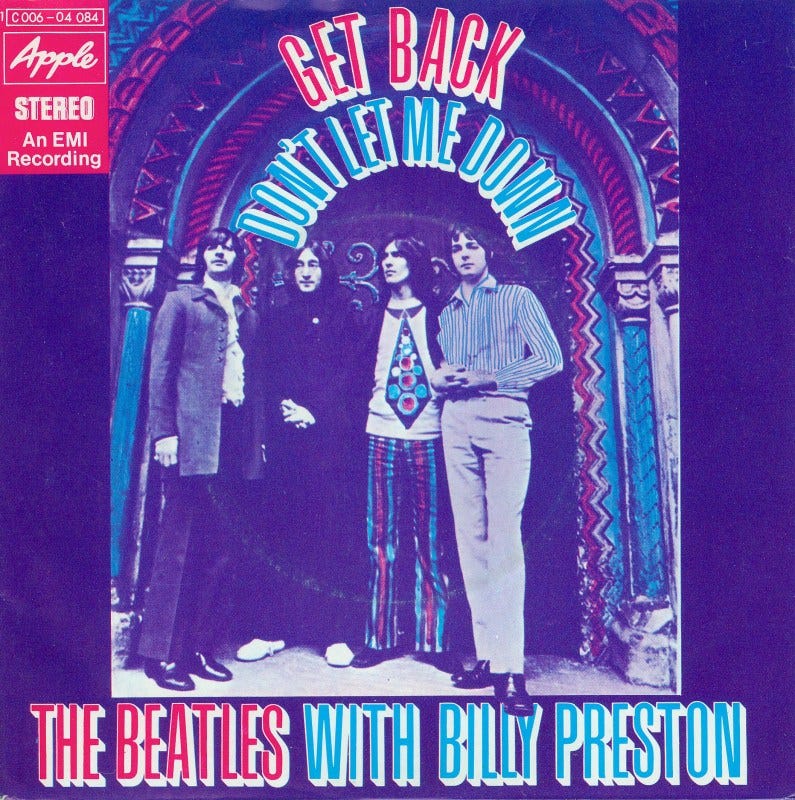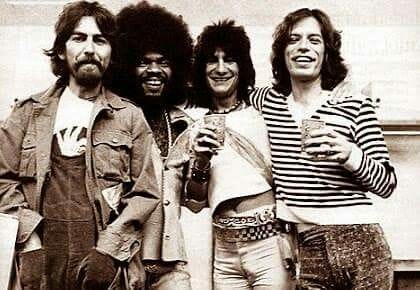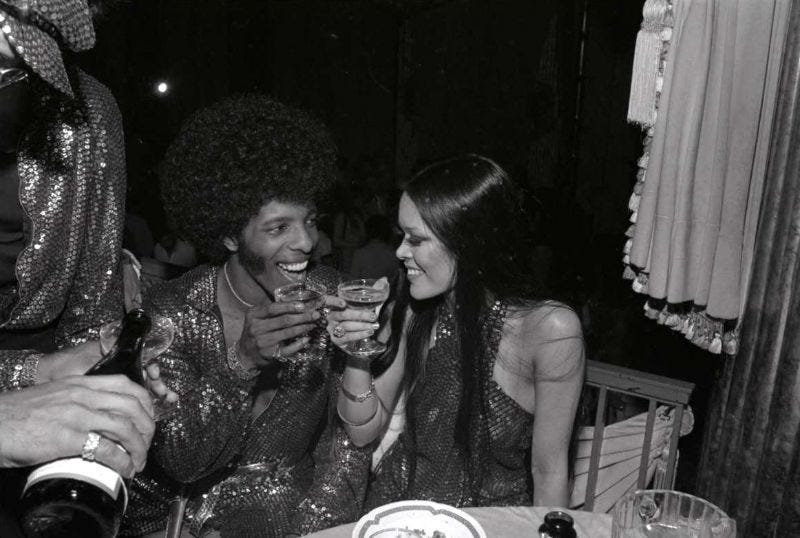The “Almost Beatle” spent his career saving others from creative stagnation but couldn’t save himself.
The renowned organist known as the “Fifth Beatle” was rushed to a Malibu hospital in 2005, gasping for air. Billy Preston’s heart was drowning. Medically speaking, he was suffering from kidney disease, hypertension, and pericarditis. The rush of fluids to his heart made it suddenly impossible to breathe. Just days before, Preston had checked into a rehab facility to face decades of cocaine and alcohol abuse. He was ready to come clean, not just of the toxins in his body, but of the emotional demons he’d harbored since the age of 9.
“Are you happy now?” Preston had asked his manager and closest friend, Joyce Moore. “I told them I’m gay.” Moore was relieved, hoping that Preston’s admission during a rehab therapy session might set him free from the pain he’d dulled for decades.
Four days later, Preston slipped into a coma and never woke up.
He died before anyone in his life truly got to see the “real” person. Billy Preston spent the breadth of his career helping others get unstuck from creative stagnation. His resume of collaborations is a mile long, touching every corner of music from Miles Davis, Aretha Franklin, Barbra Streisand, Red Hot Chili Peppers, and Johnny Cash. He filled in the missing pieces of some of rock’s most iconic songs. But Preston was never able to get out of his own way, constantly stuck going “round in circles” on a path of self-destruction. Starting from a young age, he was the victim and the perpetrator of an endless cycle of abuse.
“Will It Go Round in Circles,” Preston’s first No.1 hit as a solo artist, sounds like a Stevie Wonder-esque groove that funks so hard, one barely notices the trite paradoxical lyrics.
I've got a song, I ain't got no melody
I'ma gonna sing it to my friends
Will it go 'round in circles?
Will it fly high like a bird up in the sky?
I've got a story, ain't got no moral
Let the bad guy win every once in a while
The song’s original concept came from a joke Preston made to his writing partner, Bruce Fisher, about how he’d come up with a song but was missing a melody. What a conundrum. The lyrics aren’t deep. But, when put in the context of Preston’s complicated life, they hint at a new meaning.
Billy Preston was a child prodigy. By the age of 3, he had taught himself to play the organ. By the age of 10, he was a touring professional backing acclaimed singers like Mahalia Jackson and Nat King Cole. In 1962, 16year-old Preston joined Little Richard on his European tour. It was here that Preston first met a bunch of no-names called The Beatles, who were on the bill as Richard’s opening act. In The Beatles Anthology, John Lennon quipped, “It’s hard for people to imagine just how thrilled we, the four of us, were to even see any great rock’n’roller in the flesh and we were almost paralyzed with adoration for both of them. He (Preston) looked about 10 then.” Preston became fast friends with the fab four and would often sneak food for them backstage.
"As the opening act, [the Beatles] weren't getting fed," Preston’s manager told CBC. "And when Billy realized he could order as much food as he wanted out of the kitchen, he would order four or five steaks every night and a bunch of baked potatoes and dessert for the guys.”
By 1969, Preston had become a highly coveted session musician with artists lining up to work with him.
While on tour with Ray Charles, Preston reconnected with his old friend George Harrison, whose little no-name band had gotten so bloated that it was verging on exploding. Tensions were at a peak between the Beatles as they attempted to write and record the Let It Be album, and Harrison had just threatened to quit. Harrison convinced Preston to join the band in the studio in the hopes that his easy-going personality would change the dour vibe. The plan worked. Preston’s effervescent attitude and magic hands turned out to be the adhesive holding the band together long enough to survive the grueling sessions. The Beatles had been re-inspired by an early idol, and the creative spark had been rekindled. You can hear Preston’s soulful additions on more than half of the tracks on the album, including “Get Back” and “Don’t Let Me Down.” At one point during these sessions, John Lennon asked Preston to formally join the band as the “Fifth Beatle.” Paul McCartney disagreed, knowing that the Beatles were in their final moments as a unified group. Preston did, however, join them on the rooftop of Apple Corps headquartersfor their legendary final performance. He was also credited on the single for “Get Back” as “The Beatles with Billy Preston.”
Preston’s pivotal work with the Beatles is well documented in the Apple+ documentary, Get Back, directed by Peter Jackson (of Lord of the Rings fame).
In the years following the dissolution of the Beatles, Preston became a fixture in the band’s legacy, performing on solo projects for Harrison, Lennon and Ringo Starr. The word had also gotten out that Preston’s presence could be the salve for more rock n rollers experiencing a creative funk.
The poetic, “if you can’t be with the one you love, then love the one you’re with,” which became a huge hit for Stephen Stills? Billy Preston.
That killer bass line in the funky Rolling Stones hit, “Miss You?” Billy Preston.
In fact, Preston sprinkled his magic on five Rolling Stones albums including Sticky Fingers and Exile on Main Street. He also had a string of his own hits including 1973’s “Will It Go Round in Circles,” “Nothing from Nothing,” and “Space Race.”
The expectations for Preston’s own career must’ve been growing — and he was, as his lyrics said, “flying high like a bird up in the sky.” Soon would set in the harsh reality. Just as Preston’s solo career was beginning to take flight, it was quickly undermined by his substance abuse. He had been dulling the pain of childhood trauma. At age 9, after he and his mother moved to Los Angeles to perform in a touring production of Amos 'n' Andy, Preston was sexually abused by one of the musicians. When Preston confided in his mother about the abuse, she did not believe him, and failed to protect him. The abuse continued for an entire summer. According to Preston’s manager, Joyce Moore in a 2010 interview with BBC, the betrayal of his mother was more devastating than the violation itself, destroying his self-worth and haunting him the entirety of his career.
In 1974, Preston wrote the hit song “You Are So Beautiful,” as an homage to his mother. The song later became a hit for Joe Cocker.
According to Moore, Preston’s drug addiction intensified after discovering that his girlfriend, actress Kathy Silva, was sleeping with Sly Stone while they were working on Stone’s There’s a Riot Goin’ On album. By all accounts Preston loved Silva,and Moore says this betrayal led Preston to stop dating women. From then on, Preston would live as a closeted gay man.
As his addiction intensified, legal troubles followed. He was arrested for attempting to sexually assault a 16-year-old boy from Mexico after picking him up at a gathering place for day-laborers. Allegedly, Preston had shown him pornographic images and attempted to assault the boy before he escaped. Preston was said to have made a similar attempt with another day-laborer the day before. Although the charges of child molestation and exhibiting pornographic images to a minor were dropped, Preston pleaded no-contest to cocaine and assault charges and was sentenced to house arrest and rehab. Several years later, Preston was sentenced to three years in prison for cocaine possession. While in prison, he was indicted for fraud after setting fire to his own house in an attempt to collect over $1 million in insurance money.
Preston’s mother, Robbie Lee Williams, died in 2005. Eight months later, Preston voluntarily checked into a rehab facility and came out as gay.
According to Moore’s interview with BBC, “It was always his demon, and I knew then that he'd beat it (addiction) because he was finally able to confront who he was and deal with it. His binges were tied to it. I knew he’d beat it, but four days later, he was in a coma, and he never came back.”
I've got a story, ain't got no moral
Let the bad guy win every once in a while
Will it go 'round in circles?
Will it fly high like a bird up in the sky?
Was Preston referring to himself as the “bad guy” who, despite missing some admirable traits (a melody for his song or steps to his dance) longed for acceptance? He died just as he was beginning to confront his pain. We’ll never know if the man who spent his career helping others get unstuck would’ve finally stopped going round in circles, languishing in a perpetual cycle of abuse.
Note to free subscribers: Substack has limited tiers for paid subscriptions and does not allow for a “pay what you wish” model. If you’d like to support my work by making a small, one time donation, you can do so here. Any amount is appreciated.
Did you catch last week’s issue?
No.21 - "I Wanna Dance with Somebody (Who Loves Me)" - Whitney Houston
A singular talent whose demise came from the masks she was forced to wear.











Wow, so much I never knew about Preston...thanks, Jami! Beautifully presented.
Beautiful piece on the complexities of a man who brought so much uncomplicated joy to so many. May he rest in peace.